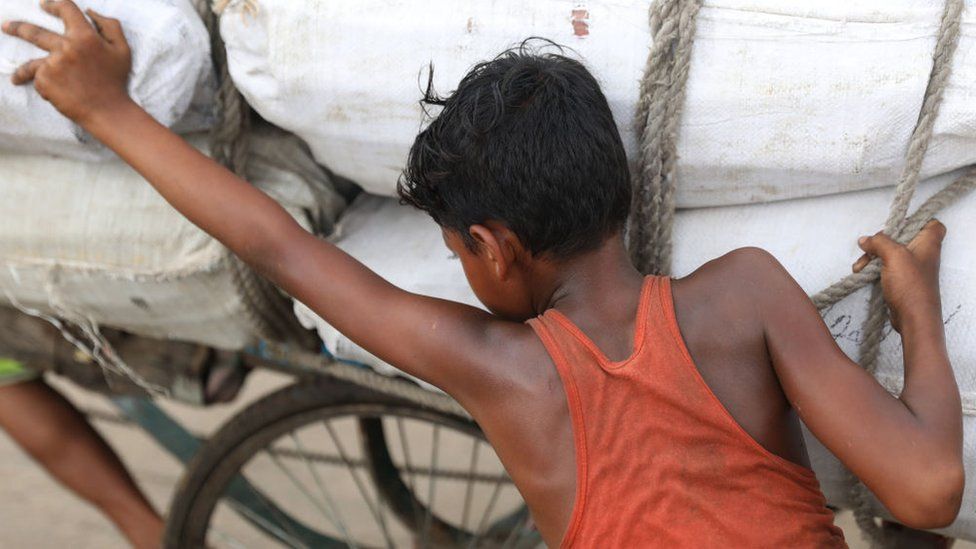EU backs law against forced labour in supply chains
European Union member states have unanimously endorsed a law mandating companies to ensure that their supply chains do not contribute to environmental degradation or employ forced labor.
Seventeen out of the 27 member nations supported the legislation on Friday, with no dissenting votes. This agreement followed significant revisions to the original proposal.
Critics contend that the law has been watered down to the point of ineffectiveness.
Under the Corporate Sustainability Due Diligence Directive (CSDDD), European corporations will be obligated to verify that the products they import comply with environmental and human rights standards, including the prohibition of child labor. They must also take measures to prevent or mitigate potential harm and disclose their findings.
However, concessions made after weeks of negotiations mean that only larger enterprises with 1,000 or more employees and a net turnover of at least €450m (£384m; $489m) will be impacted. Initially, the proposal targeted firms with 500 employees or more and a revenue of €150m.
The draft legislation requires approval from the European Parliament to be enacted, a step that is expected to pass with MEP support. Businesses will then be granted a transition period to adopt the new requirements.
This approval comes after the bloc faced two failed attempts in February to pass the legislation. Germany and Italy were among the countries opposing the original text, expressing concerns about its potential impact on their numerous small and medium-sized enterprises. There were also worries about companies relocating outside the EU due to increased bureaucracy and legal risks.
Markus Beyrer, Director General of the BusinessEurope lobby group, criticized the new regulations for imposing significant obligations, severe penalties, and potential existential risks on companies, while also exposing them to global litigation.
“European companies with global operations, some with millions of indirect relationships, will be put at a disadvantage compared to their global competitors,” Mr Beyrer added.
Environmental and human rights campaigners welcomed the move to improve firms’ accountability but voiced disappointment with the draft law.
According to the World Wide Fund for Nature (WWF), almost 70% of European companies have been removed from the new obligations due to the changes to the draft text.
“This spineless deal completely disregards the needs of both companies and communities to effectively tackle the impacts of climate change,” said Uku Lilleväli, a WWF spokesperson.
Oxfam’s Economic Justice lead Marc-Olivier Herman said “They slashed the rules to appease big business, dealing a blow to Europe’s self-claimed standing as a champion of democracy and human rights”.
Campaign group Anti-Slavery International wrote on X, formerly Twitter, that it was “very happy to see that the [European] Council has been able to come together and uphold this commitment, prioritizing people and planet over political and business interests”.
But it added: “While today’s developments are very positive, we know that the quality of the law has been eroded by these post-agreement challenges.”


